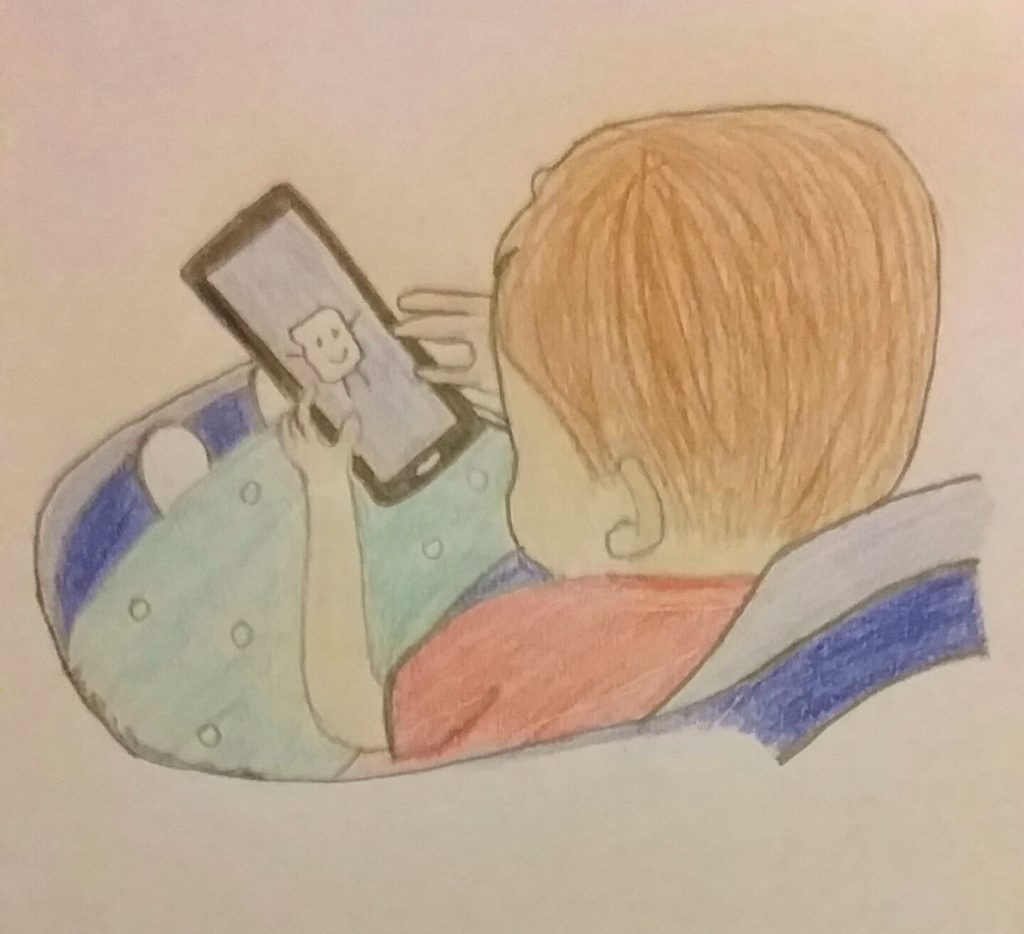by Koel Bhowmik
Every morning he doesn’t have school, Arina Nath’s brother wakes up at 5 a.m. to play games on his computer. But on school days, he struggles to get out of bed by 7:30 a.m.
Nath,16, is one of the local teens that is worried about her younger siblings’ well being. The Ditmas Examiner interviewed teens who expressed concerns for their siblings’ technology use and eating habits.
While she considers herself a healthy eater, Adamaris Vaquero, 16, sees her young cousins eating processed foods. “A handful of my cousins have this really bad habit of consuming excessive amounts of junk food,” she said. “As soon as they wake up, they eat junk food. Whenever someone cooks food for them they never want to eat it. Instead they would rather go eat a bag of chips.” This puts Vaquero’s cousins’ health at risk since obesity could lead to diabetes, cardiovascular disease, high blood pressure, and many other illnesses as well, according to the National Institutes of Health.
Bonnie Chen wishes her siblings ate too much. “Both my siblings have the tendency to skip breakfast and eat really little, simply because ‘they aren’t hungry’ or they are going to get ‘fat,’” the 16 year old said. She is concerned that malnutrition is contributing to her brother being short and underweight. Her older sister “has been getting stomach aches for no reason but I think it’s her body’s reaction after years of skipping breakfast,” said Chen.
Whether it is computer games or healthy eating, Chen says that social media is having too much influence on the younger generation. “Social media portrays how an ‘ideal’ person should look like which in reality, no one can look perfect, and this makes the younger generation self-conscious of themselves. Trends come and go fast and most of these trends are pretty dumb which makes me worried for the younger generations to come,” said Chen.
The generational approach to looking at younger siblings is interesting to researchers. The for profit company The Center for Generational Kinetics is focused on finding the connections between what Chen and Nath see at home with their little brothers.
Current teens are considered part of Generation Z, a group known for growing up during a time of social media and technology boom. Another name for the group is iGen. Not only is Gen Z tech savvy, but it is also highly educated. According to CGK research, a huge percentage of Gen Z will attend and graduate from college at a higher rate than any of the preceding generations. The parents of Gen Z are mostly Generation X and Millennials, which plays a prime reason into how and why this generation will be different from the previous generations.
But what about Nath and Chen’s brothers? What generation will they be part of?
Mark McCrindle, a futurist, demographer, and a TEDx speaker came up with an idea: anyone born after 2010 is considered to be a part of Generation Alpha. He said in time there will be a demographic shift from traditional values to a more technological ideas. This would result in Generation Alpha being one of the youngest ages to interact with technology.
This is worrisome for Nath. When she was younger, her mother allowed her to play on the computer, but always with a time limit. She was constantly warned of the consequences of using technology for too long, she said.
“And that is the exact thing I want my younger brother to remember now,” Nath said. “But I want him to keep in mind that too much can be overwhelming and lead to negative side effects as well. There’s more to life than just a phone.”
 illustration by Koel Bhowmik
illustration by Koel Bhowmik